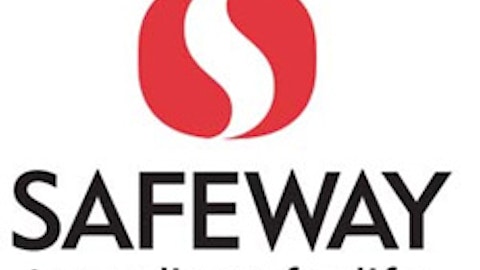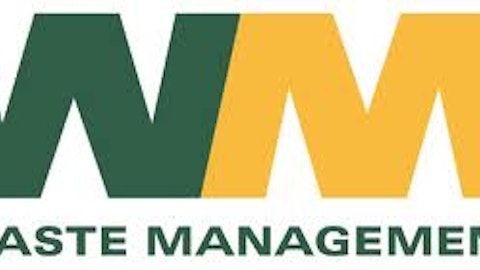Many people have become familiar with Whole Foods Market, Inc. (NASDAQ:WFM)‘s founder and co-CEO John Mackey due to sound bites blared in media headlines. He called climate change “not a big deal.” He quoted Britain’s Iron Lady, Margaret Thatcher, in a Wall Street Journal op-ed about health care several years ago, and has been known to mention hot-button words like “socialism” and “fascism” to discuss American policies. And a long, long time ago he made an off-color joke about unions.
Unfortunately, given the political climate in our society these days, some of these quotes have occasionally angered and alienated people, causing them to put their metaphorical earplugs in and ignore what Mackey has to say on important topics.
Here’s a topic that’s less discussed, though, because it’s a true paradigm shift from the way many people think in the first place. Mackey talks a lot about love and caring, and how “conscious capitalism” is a movement that can save our economy — and the world — from many of today’s problems.
Love can vanquish evil
Conscious Capitalism: Liberating the Heroic Spirit of Business, the recently published book co-authored by Mackey and Raj Sisodia, outlines a philosophy that delivers the overdue reminder that capitalism is not always and doesn’t have to be “evil.”
The book acknowledges the reasons that it’s gotten a bad rap. Having been inundated with bad corporate actors, as well as what Mackey calls the “cancerous” developments that metastasized on Wall Street, it’s easy to dismiss hopes that positive commerce can boost economic progress for all. (Click here for a recent clip from an interview on this and other topics right here at Fool HQ.) This attitude comes despite the fact that there are plenty of businesses that care, even big corporations, and they’re taking into account many stakeholders, not just shareholders.
This is the promise of conscious capitalism, which is geared toward long-term evolution, not the unaware, cutthroat environment of short-term thinking that has poisoned the well here lately.
Despite his occasionally controversial comments — which in my opinion actually speak to his authenticity as a human being, not a cardboard cutout like most CEOs and politicians — Mackey is the type of individual our society seems to lack these days: widely read and informed.
The book mentions and draws from the wisdom of many disparate thinkers, past and present: Plato, Adam Smith, Milton Friedman, Abraham Maslow, Erik Erikson, Martin Luther King, Jr., Daniel Pink, Gandhi, Peter Drucker, and many others. One of the most important things the general public may not know about was Mackey’s triumphant argument against Friedman’s well-known dogma: that profit is the only “social responsibility” of business.
Obviously, one can view capitalism in a different, more loving, way.
What is conscious capitalism?
At their core, conscious businesses operate with a higher purpose than simply making money — addressing big questions about the world and our contributions to it. These are companies that take a holistic and systemic approach to operations, and they create value not only for themselves and shareholders, but for all stakeholders.
As the book describes in depth, conscious businesses operate based on four tenets: Higher Purpose; Stakeholder Integration; Conscious Leadership; Conscious Culture and Management.
Conscious Capitalism describes a lofty dream for the future of the movement: “One day, virtually every business will operate with a sense of higher purpose, integrate the interests of all stakeholders, develop and elevate conscious leaders, and build a culture of trust, accountability, and caring.”
Are there any conscious businesses?
Conscious Capitalism gives plenty of examples of conscious businesses and how they interact with the world. Obviously, a lot of the book deals with Whole Foods Market and Mackey’s journey to becoming a conscious capitalist, but here are a few other examples.






